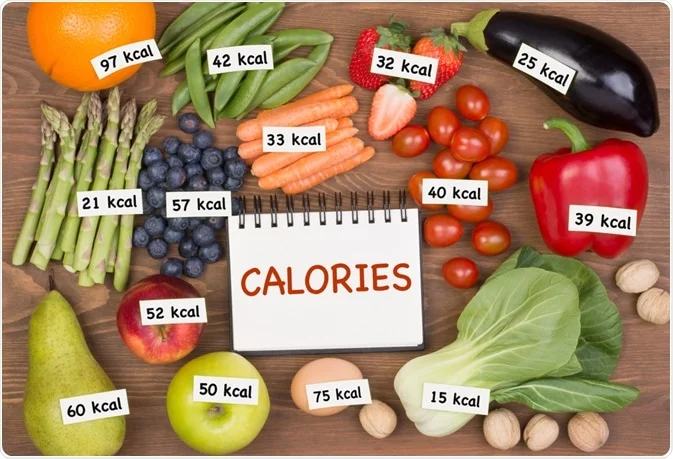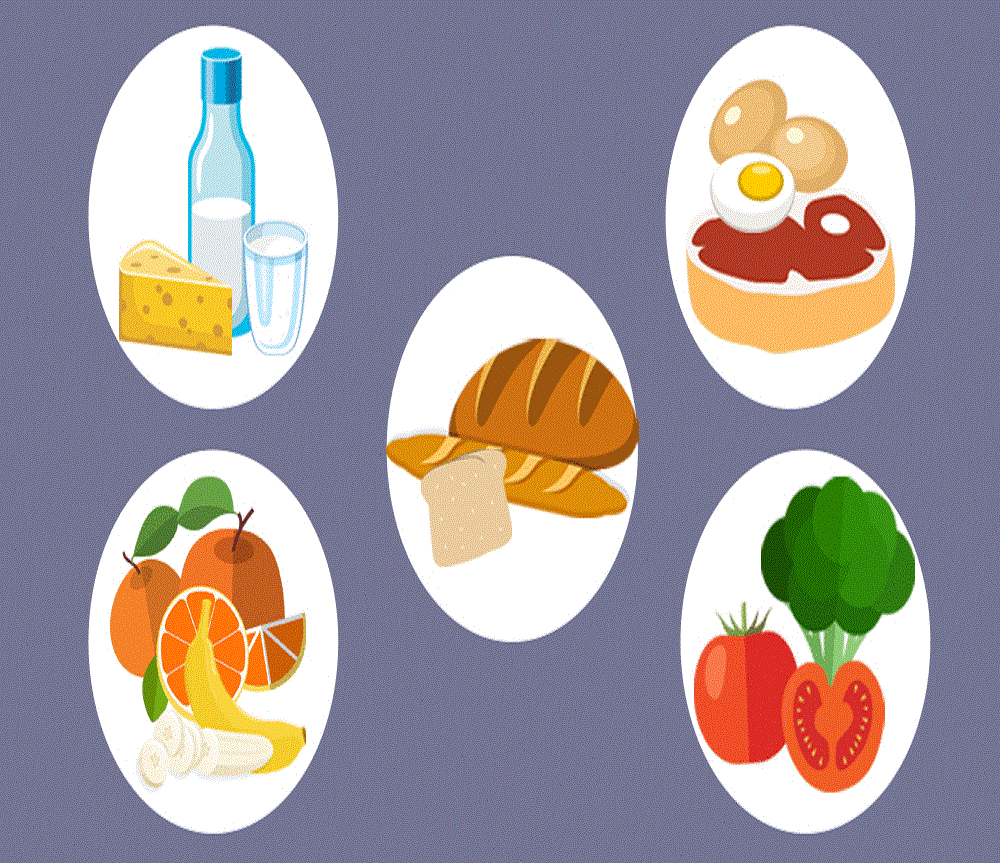Understanding Nutrition and Diet
Nutrition and diet are fundamental components of a healthy lifestyle. Proper nutrition involves consuming a balanced diet that provides the essential nutrients your body needs to function correctly. These nutrients include carbohydrates, proteins, fats, vitamins, minerals, and water. Each plays a crucial role in maintaining bodily functions, supporting growth and development, and preventing chronic diseases.
The correct amount and variety of food provide the correct amount of nutrients for health and well-being.
Dietary Guidelines
Following a healthy diet can be as simple as following the Dietary Guidelines for Americans. These guidelines, updated and released every five years since 1980 by the U.S. Department of Health and Human Services (HHS) and the Department of Agriculture (USDA), aim to promote health and reduce the risk of major chronic diseases for people aged two years and older. They also address ways to maintain a healthy weight.

Adequate Nutrients Within Calorie Needs
Aim to consume a variety of nutrient-dense foods and beverages from all the basic food groups. Choose options that limit the intake of saturated and trans fats, cholesterol, added sugars, salt. Avoid smoking and alcohol. Follow balanced eating patterns, such as the USDA Food Guide or the DASH Eating Plan, to meet recommended nutrient intakes within your energy needs.
Food Groups to Encourage
Consume an adequate amount of fruits and vegetables within your energy needs. For a reference 2,000-calorie diet, aim for 2 cups of fruit and 2½ cups of vegetables per day, adjusting for your specific calorie needs. Select a variety of fruits and vegetables daily, including choices from all five vegetable subgroups (dark green, orange, legumes, starchy vegetables, and other vegetables) multiple times a week.
Include three or more ounce-equivalents of whole-grain products per day, with the remainder of your grain intake coming from enriched or whole-grain products. Ensure that at least half of your grain consumption is from whole grains. Aim for 3 cups per day of fat-free or low-fat milk or equivalent dairy products.


Physical Activity
Engaging in regular physical activity and minimizing sedentary behaviors are crucial for promoting overall health, psychological well-being, and maintaining a healthy body weight. A well-rounded fitness routine should include cardiovascular conditioning, such as walking, running, cycling, or swimming, to improve heart health and increase stamina. Incorporate flexibility exercises like stretching or yoga to enhance flexibility, reduce the risk of injury, and improve the range of motion. Regular physical activity supports a healthy body and mind, fostering overall well-being and resilience.
What Are Carbohydrates?
Carbohydrates are one of the six essential nutrients, serving as the primary source of fuel for your body. Your red blood cells and most parts of your brain derive all of their energy from carbohydrates. An adequate consumption of carbohydrates also allows your body to use protein and fat for their necessary requirements, prevents ketosis, provides fiber, and is the source of sweetness in your foods.
Carbohydrates are all made up of carbon, hydrogen, and oxygen but vary in their nutritional value. Based on their structure, carbohydrates are divided into two categories:
Simple Carbohydrates
- Monosaccharides: Fructose (fruit sugar), Glucose (blood sugar), Galactose (part of milk sugar)
- Disaccharides: Sucrose (a combination of fructose and glucose, i.e., table sugar), Maltose (a combination of glucose and glucose), Lactose (a combination of galactose and glucose, i.e., milk sugar)
Complex Carbohydrates
- Polysaccharides: Combinations of thousands of glucose units (starch, glycogen, fiber)
Ultimately, all carbohydrates are broken down and converted into glucose. Complex carbohydrates take longer to digest and provide fiber, making them the best sources of carbohydrates. However, fruits and milk are also healthy sources as they contain both simple and complex carbohydrates.
Dietary Guidelines for Carbohydrate Consumption:
- Choose fiber-rich fruits, vegetables, and whole grains often.
- Choose and prepare foods and beverages with little added sugars or caloric sweeteners.
- Reduce the incidence of dental caries by practicing good oral hygiene and consuming sugar-and starch-containing foods and beverages less frequently.
Dietary Reference Intakes for Carbohydrate Consumption:
- Adults and children should get 45%-65% of their calories from carbohydrates.
- Added sugars should comprise no more than 25% of total calories consumed.
- The recommended intake for total fiber for adults 50 years and younger is set at 38 grams for men and 25 grams for women, while for men and women over 50 it is 30 and 21 grams per day, respectively.
Carbohydrates are found in grains, fruits, milk/yogurt, and vegetables. They are essential for your health, and their appropriate sources and amounts should be consumed.
What Are Proteins?
Protein is a vital nutrient necessary for numerous bodily functions:
- Regulates and maintains body functions: blood clotting, fluid balance, and enzyme and hormone production
- Supports growth and maintenance: hair, skin, nails, and cells
- Builds antibodies necessary for your immune system
- Provides energy
Amino acids are the building blocks of protein, containing up to 20 different amino acids. There are essential and nonessential amino acids; essential amino acids must be consumed through diet, while nonessential amino acids can be made by the body.
Dietary Reference Intakes for Protein Consumption:
- Adults and children should get 10%-35% of their calories from protein.
- The recommended level of protein intake is 0.8 grams per kilogram of body weight for adults, with increased levels during pregnancy.
Complete proteins (e.g., animal proteins) contain all essential amino acids, while incomplete proteins (e.g., vegetables, grains, and nuts) can become complete when combined.
What Are Fats?
Dietary fat is essential for health and should be a part of everyone’s diet. It is required for:
- Energy: Fat provides 9 calories per gram, the most concentrated source of calories.
- Transport of fat-soluble vitamins: A, D, E, and K.
- Maintenance of healthy skin.
- Regulation of cholesterol metabolism.
- Precursor of prostaglandins (hormone-like substances).
Fats are primarily in the form of triglycerides, with fatty acids categorized as monounsaturated, polyunsaturated, and saturated.
Dietary Guidelines for Fat:
- Consume less than 10% of calories from saturated fatty acids and less than 300 mg/day of cholesterol, keeping trans fatty acid consumption as low as possible.
- Keep total fat intake between 20%-35% of calories, with most fats coming from sources of polyunsaturated and monounsaturated fatty acids.
- Limit intake of fats and oils high in saturated and/or trans fatty acids.
Dietary Reference Intakes for Fat Consumption:
- Adults should get 20%-35% of their calories from fat.
- Infants and younger children should get 25%-40% of calories from fat.
What Are Fat-Soluble Vitamins?
Fat-soluble vitamins (A, D, E, and K) are needed for various bodily functions, including regulation of the immune system, bone health, and vision. They are absorbed and transported by the bloodstream and can be stored in the body.
What Are Water-Soluble Vitamins?
Water-soluble vitamins (B and C) are essential for energy release and collagen formation. They are excreted in the urine and associated with well-known deficiency diseases.
What Are Minerals?
Minerals are categorized as major (e.g., calcium, phosphorus, magnesium) and trace (e.g., iodine, iron, zinc). They are essential for various bodily functions, including bone and tooth strength, nerve function, and immune system health.
Understanding the roles and sources of these nutrients can help you make informed choices about your diet, leading to better health and well-being.
Common Nutritional Myths Debunked
Carbohydrates
Myth: Carbs are the enemy and should be avoided for weight loss.
Reality: Carbohydrates are essential for providing energy. Choosing complex carbs like whole grains, fruits, and vegetables supports a healthy diet and sustained energy levels.
Fats
Myth: All fats are bad and should be eliminated from your diet.
Reality: Healthy fats, such as those found in avocados, nuts, seeds, and olive oil, are crucial for brain health and nutrient absorption. It’s trans fats and excessive saturated fats that should be limited.
Proteins
Myth: Plant-based proteins are inferior to animal proteins.
Reality: Plant-based proteins can be just as effective as animal proteins. A variety of sources like beans, lentils, tofu, and quinoa provide all essential amino acids.
Vitamins
Myth: Taking vitamin supplements is always necessary for good health.
Reality: Most people can get sufficient vitamins from a balanced diet rich in fruits, vegetables, whole grains, and lean proteins. Supplements are only needed when there is a specific deficiency.
Minerals
Myth: You can’t get enough minerals from plant-based foods.
Reality: Many plant-based foods are rich in essential minerals. For example, leafy greens are high in calcium, and nuts and seeds are excellent sources of magnesium and zinc.
